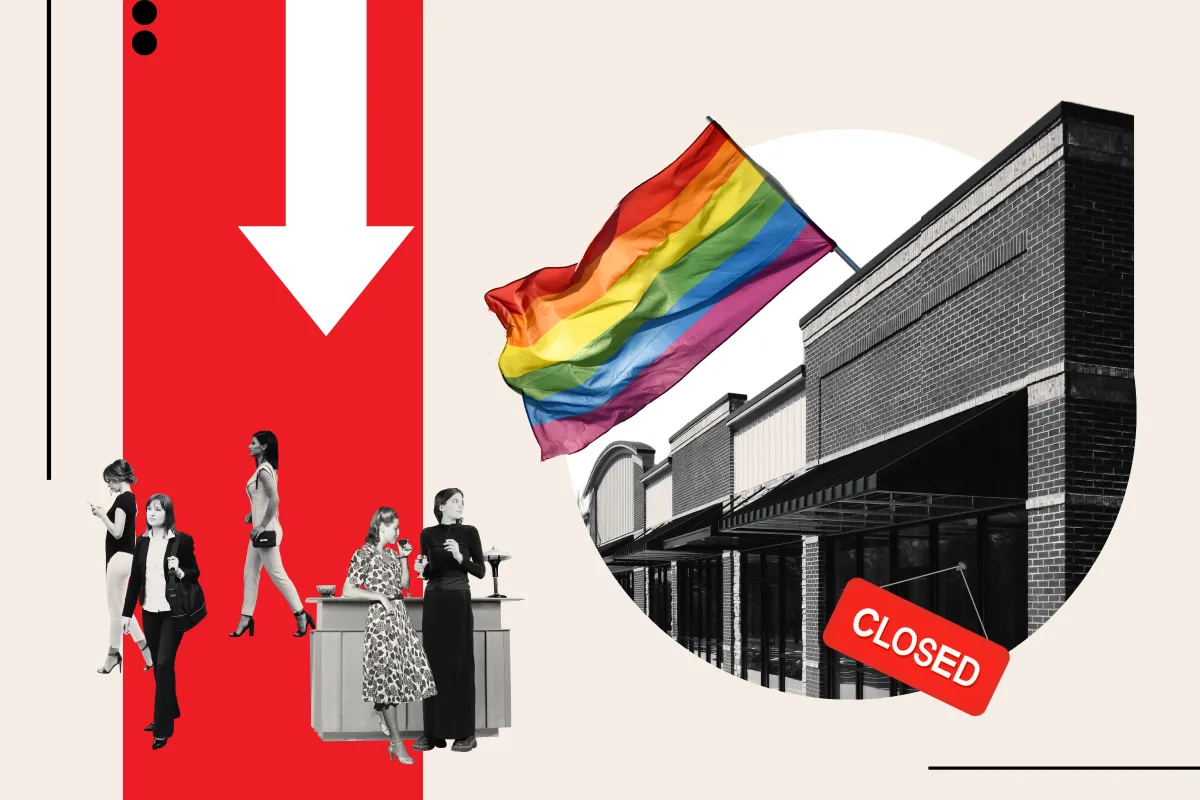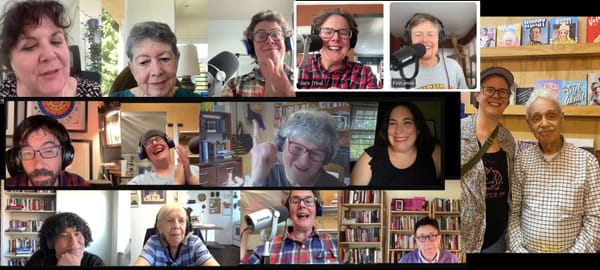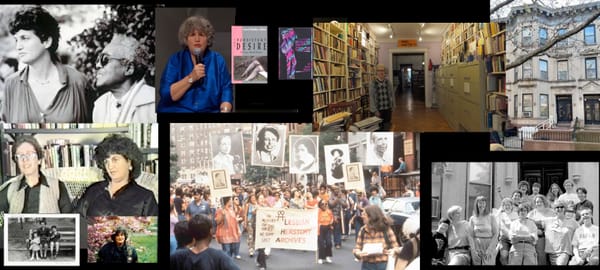I (Used to) Hate Dyke Bars*

I hate dyke bars*. Or I used to.
Now I'm writing a book about them.
In the fall of 2020, the bright leaves were falling on very lezbiqueertrans western Massachusetts. I had moved into my dyke bff’s / pandemic podmate’s guest room. We helped one another other stay sane and navigate so much loss, taught our classes online from different rooms, meditated in the mornings (I drafted off of her), watched TV in the evenings (that was my idea), cruised the dating apps, and she went vegan while I delighted in supporting her.
It was the time of vast tragedy, emptiness, fear, uneasy quiet, and friendship—punctuated for me by emails that outraged me.
Weirdly, eight journalists reached out to me about my first book, A Queer New York: Geographies of Lesbians, Dykes, and Queers. I didn't think of it as weird right away but, c'mon, it was weird. While I use humor, punchy stories, and as many quotes as possible that discuss sex or use the word "fuck" within, it was weird because AQNY is still a 336-page academic book. Earnest as I am, I thought I had written something dope af. They too wanted to engage in a geographic critique of the ways dykes partook in and/or were used to further processes of gentrification for 25 years. They also were dying to discuss how we went from the early years of the AIDS epidemic through the The L Word, both gentrifying and being gentrified out of the city. These journalists must be dying to discuss the mental maps and stories of my New Yorker participants so we could discuss Stonewall, sure, but also discuss queer history beyond the myopia on this onekey event. Hell yes.

Reader, you are likely unsurprised to hear that these journalists had not read my book, and they did not want to discuss any of these things.
Instead, they only wanted to talk about the closing of lesbian bars and, especially, the record low number of 16 known lesbian bars in the U.S. While I was often quoted, they left out:
- My comments about bar closure following the closure of most LGBTQ, lesbian, and feminist restaurants, bookstores, cafes, gyms, co-ops, and more.
- My points about queer parties being just as key to lezbiqueertrans life as bars, especially BIPOC people who have historically faced epic racist discrimination in most lesbian bars, but are rarely given those props.
- My urging to think more broadly about the constellations of interdependent dyke spaces and worldmaking that still burn bright, long after they close.
Plus, it wasn't just journalists–and it wasn't any sense of annoyance, frustration, or malevolence toward their sticky floors or lack of cocktail expertise (I've aged; they haven't; this is fair). This had been happening to me forever. If I bring up my study of lezbiqueertrans spaces that people–queer and straight, cis and trans alike–have asked me about me about lesbian bars, and, more recently, about the closing of gay men's bars and LGBTQ bars. They ask good questions like: Why are they closing? Did you go to x bar in x city in x year, and what was it like? Will we ever have bars again? And, the worst of it, Is dyke identity over if dyke bars close* [1]
They often don't want to hear the same things I told the journalists. We've been waiting for easy answers.
The truth is:
- I know the reason(s) that lesbian bars, gay bars, and LGBTQ bars closed.
- And, when I was speaking about those journalists, I also left out one key thing.
But I'll tell you all that one key thing tomorrow.
And I'll tell you how I came to love dyke bars* too.
That last question will be an entire post about Mairead Sullivan's brilliant Lesbian Death. Another day though. ↩︎




